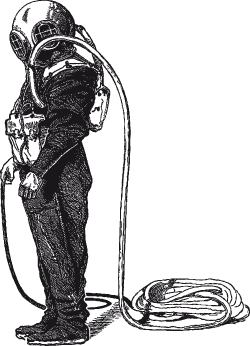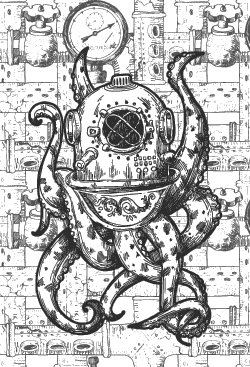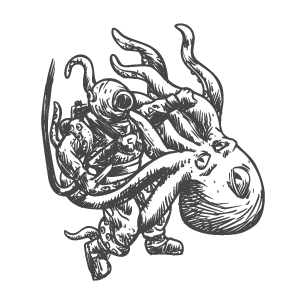The Disadvantages of "Deep Work"
By Deanna deBara ![]() | Published November 10, 2021
| Published November 10, 2021
Deep work is a concept popularized by author Cal Newport in his 2016 book, “Deep Work: Rules For Focused Success In A Distracted World.” Newport defines deep work as “the ability to focus without distraction on a cognitively demanding task.” So, for example, if you’re a writer, an example of deep work might be disconnecting from the internet, powering off your phone, and spending a few hours entirely focused on writing an article. If you’re a software developer, your deep work might mean buckling down and problem-solving a code-related issue—free from external distractions like Slack or email notifications.
 In a world of near-constant distraction, deep work has some profound benefits. By eliminating distractions and focusing on a single cognitively challenging task, you’re also removing the tendency to multitask—which, according to research highlighted by the American Psychological Association, has been shown to cause productivity to drop by up to 40 percent. Giving yourself space for uninterrupted work can also help keep workplace stress to a minimum. Research from the University of California, Irvine, has found that workplace interruptions cause workers to experience more stress, higher frustration levels, and increased time pressure and effort at work.
In a world of near-constant distraction, deep work has some profound benefits. By eliminating distractions and focusing on a single cognitively challenging task, you’re also removing the tendency to multitask—which, according to research highlighted by the American Psychological Association, has been shown to cause productivity to drop by up to 40 percent. Giving yourself space for uninterrupted work can also help keep workplace stress to a minimum. Research from the University of California, Irvine, has found that workplace interruptions cause workers to experience more stress, higher frustration levels, and increased time pressure and effort at work.
But not all work can be deep work—and if you try to eliminate distractions, you’re likely to find yourself dealing with some significant drawbacks.
But what, exactly, are those drawbacks? Let’s take a look at some of the disadvantages of deep work—and how some level of distraction can help you be more productive at work:
Deep work can hinder deep connections.
Being productive, getting things done, and powering through projects that require focus are essential elements of success at work. But they’re not the only element; part of being successful (not to mention happy!) at work has to do with the connections you make while at work.
If all of your time is spent on deep work, you miss opportunities to connect with your coworkers, colleagues, and leaders. And those connections can be seriously beneficial to your career, whether that’s by forming personal relationships (for example, a friendship with a coworker or a mentor/mentee relationship with a supervisor), gaining insights from your colleagues, or developing connections with customers and/or clients, which can lead to a higher level of engagement with your business.
For example, if you’re constantly engaged in deep work, you might miss an invitation from your manager to grab lunch. And if you don’t reply to enough of those invitations, they’re going to stop asking—and you miss out on the opportunity to form a better, more profound connection with your supervisor. Or, if you keep your Slack notifications turned off for most of the day, you’ll miss the spur-of-the-moment conversations that happen between your coworkers—which can lead to you feeling disconnected from the team.
The point is, work is about more than powering through projects, tasks, and responsibilities. It’s also about connecting with the people around you—and if you spend too much time engaged in deep work, you could miss out on those opportunities for connection.
Deep work can mean fewer breaks—and fewer break-related benefits.
 When you’re intensely focused on a task, it can be easy to lose track of time—and all of a sudden, you’ve been working for four hours without a break.
When you’re intensely focused on a task, it can be easy to lose track of time—and all of a sudden, you’ve been working for four hours without a break.
And while powering through that kind of deep work is fine on occasion, regularly working without breaks can seriously hinder your ability to get things done—and get them done well.
For example, according to a study from the University of Illinois, your attentional resources and ability to focus decline when you work on a single task for an extended period. But if you take regular, short breaks from that task? You can better sustain your focus, concentration, and attention. Taking frequent breaks (as opposed to focusing solely on deep work) has also been shown to encourage creative thinking, lower stress, and increase positive affect at work—all of which contribute to a higher level of productivity.
Bottom line? Too much deep work can translate to too few breaks—which can cause productivity to take a nosedive.
Deep work can limit your exposure to new information and ideas.
Distractions can often be just that—distractions. But sometimes, engaging in distractions can expose you to new information and ideas—and if you’re only engaged in deep work, you’ll miss that exposure.
For example, taking five minutes to scroll through your social media feed could be (and often is) a distraction. But occasionally, you’ll land on an article or post that exposes you to something new and exciting—something you would have missed if you didn’t allow time for distraction in your day.
Or let’s say you avoid chatting with your coworkers; that way, you’re not distracted from your deep work. While you’re sure to get more done during the day, you also miss out on the opportunity to learn and gain insight from coworkers.
When you’re engaged in deep work, you’re sure to get done whatever task you’re focusing on—but that’s all you’ll get done. Creating some time for distractions creates the potential for learning or engaging with something new—which is never a waste of time.
How to enjoy the advantages—and avoid the disadvantages—of deep work
Deep work is a tricky concept; when done correctly, it can improve performance, but it can seriously hinder productivity at work when managed incorrectly.
 So, the question is, how can you make deep work work for you—and avoid the disadvantages associated with it?
So, the question is, how can you make deep work work for you—and avoid the disadvantages associated with it?
- Schedule time for deep work and distractions. There’s a time and a place for deep work. But there’s also a time and place for distractions or less focused or demanding tasks. So, when you’re scheduling out your day, make sure to schedule time for both.
- Take regular breaks. As mentioned, breaks are hugely beneficial to productivity. So, if you’re engaging with deep work, make sure you’re scheduling in plenty of time for breaks. For example, you might try the Pomodoro Method, which has you work in 25-minute bursts of “deep work”—followed by a 5-minute break, where you can engage in something else (like a less demanding task or a digital distraction, like visiting your favorite news site and reading an article).
- Combine deep work with collaboration. If you have a task that needs your total focus—but you don’t want to lose out on the benefits of connecting with people at work—try combining deep work and connection. For example, if you need to spend the afternoon completely focused on a project deliverable, ask another team member to work on it with you; that way, you get all the benefits of deep work—without feeling isolated or disconnected from your team.
How do you feel about deep work in your own daily experience? Let us know in the comments.
Tags
focus deep work productivity tasks
Categories
Workflow Ideas Productivity Tips

Deanna deBara
Deanna deBara is an entrepreneur, speaker, and freelance writer who specializes in business and productivity topics. When she's not busy writing, she enjoys hiking and exploring the Pacific Northwest with her husband and dog. See more of her work and learn more about her services at deannadebara.com.
